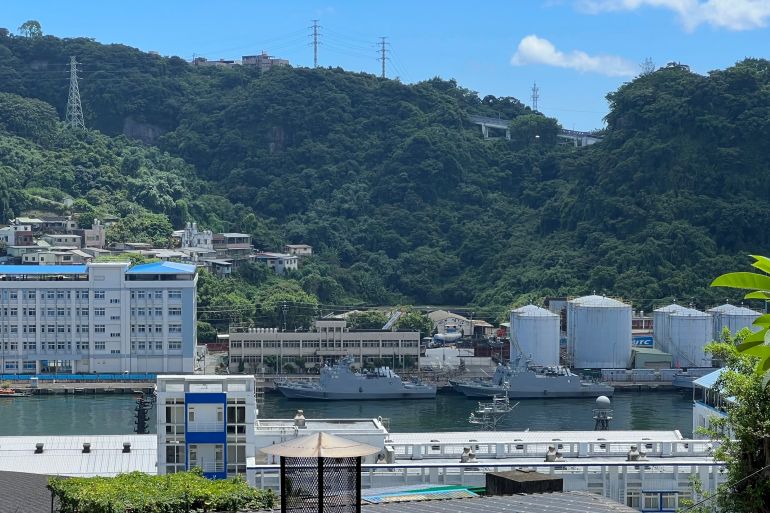Taiwan detects Chinese balloon, fighter jets crossing median line
Activity along Taiwan Strait comes as Taipei is on high alert for Chinese interference ahead of elections next month.

Taiwan has said that a dozen Chinese fighter jets and a balloon crossed the Taiwan Strait’s sensitive median line, as tensions simmer about a month before the island’s presidential election.
Democratically governed Taiwan, which China claims as its own territory, has complained for the past four years of regular Chinese military patrols and drills near the island.
Keep reading
list of 4 itemsNot all in China’s military view Taiwan, the West as primary threat
Taiwan opposition registers separate candidates after collapse of unity bid
China warns against ‘provocation’ as Australian warship sails Taiwan Strait
Offering details of Chinese missions on Friday, Taiwan’s defence ministry said that on Thursday night, 12 fighter jets crossed the median line that once served as an unofficial barrier between the two sides.
In total, it said 26 Chinese military aircraft were detected, along with 10 Chinese navy ships, in the 24 hours before 6am local time on Friday (22:00 GMT on Thursday), but only about half had crossed the median line.
Taiwan’s military monitored the situation with combat aircraft, navy vessels and land-based missile systems, the ministry said.
In an unusual addition to its statement, the ministry said at about midday on Thursday it had also detected a Chinese balloon 101 nautical miles (187km) southwest of the northern Taiwanese city of Keelung. It travelled eastwards for about an hour, crossing the strait before disappearing, possibly into the Pacific Ocean.
Taiwan’s defence minister Chiu Kuo-cheng told reporters that their “initial understanding” was it was probably a weather balloon, but felt the ministry had an obligation to report this to be public.
“Otherwise, if after other units or other countries have reported it, everyone will wonder why (we) did not report it. The defence ministry requires all our subordinate units to have a grasp of the enemy situation,” he added.
China’s defence ministry did not respond to a request for comment, the Reuters news agency said.
Elections
China has in recent years ramped up military and political pressure on Taiwan. While Beijing has been sending warplanes and vessels around Taiwan on a near-daily basis, nighttime activity by Chinese aircraft and the appearance of a balloon are rare.
The potential for China to use balloons for spying became a global issue in February when the United States shot down what it said was a Chinese surveillance balloon but which China said was a civilian craft that accidentally drifted astray. The Pentagon concluded in June that the balloon did not gather data.
Still, the Chinese missions have prompted Taiwan to increase its purchases of aircraft from the US, its chief ally, and revitalise its own defence industry, including producing submarines.
The island is on high alert for Chinese activities, both military and political, ahead of its presidential and parliamentary polls on January 13.
Campaigning has kicked into high gear, and how the next government handles relations with China is a major point of contention. Taipei is also cautious of Beijing’s alleged efforts to interfere in the ballot to get electors to vote for candidates China may prefer.
Vice President Lai Ching-te and running mate Hsiao Bi-khim from the ruling Democratic Progressive Party are leading in the polls. China views them as separatists and has rebuffed Lai’s offers of talks.